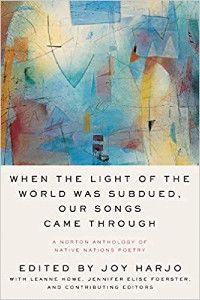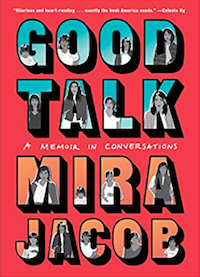On the cusp of 2019, I noticed a pattern while sharing my reading numbers. Year after year, novels, novellas, and short story collections clinched first: 34 books in 2018 (from a total of 52 books), 26 in 2017 (out of 40 books total), and 15 in 2016 (out of 32 books total). My end-of-year stats and stacks revealed me clinging to fiction, and literary fiction at that, and I wanted to remedy it. So, I focused on balance. At 2019’s end, I read 107 books: 42 fiction, 38 poetry, and 27 nonfiction titles. Better, but not my best. A book juggler, my sweet spot is three, but sometimes I read as many as five at once. Typically, I strive for one fiction title, one nonfiction, and one poetry collection over the weekend. Occasionally, instead of a memoir or essays, I read a novel and story collection, like that weekend I cuddled up with Quan Barry’s We Ride Upon Sticks and Shruti Swamy’s A House Is a Body. Another weekend, I paired adult fiction, Hala Alyan’s Salt Houses, with a middle grade novel, Justina Ireland’s Ophie’s Ghosts. Even when I’m not balancing genres well, because of looming library due dates or reading an ARC before its release or researching for an assignment, I’m thinking about returning to the paused genre in my subsequent bundle. Usually, I read poems before I write and in fleeting moments: during commercial breaks, while waiting for a coconut latte in the drive through. In my reading nook, doorstoppers lounge, which I sip little by little, next to the window overlooking the white crepe myrtle. There, I finished The Collected Poems of Audre Lorde and When the Light of the World Was Subdued, Our Songs Came Through, and I’m currently, column by column, working my way through ‘Ōlelo No’eau: Hawaiian Proverbs and Poetical Sayings. I reserve my dedicated reading time before bed for prose. With that longer swath of time, I leaf through a chapter or an essay by lamplight, or I devour pages for hours that lead to me clutching a mug of tangerine tea or coffee with sweet cream the following morning. Sometimes people ask how I juggle so many books and keep them sorted. A short answer escaped me until now. In 5 Tips for Reading Multiple Books at the Same Time, Adiba Jaigirdar advises readers to “read different genres.” Jaigirdar writes, “Nothing will confuse you more than reading multiple books which have too many similarities.” Maybe that’s my (not so) secret (anymore). At the close of 2020, I finished 165 books. For the first year, poetry pulled ahead with 70 titles. (I credit The Sealey Challenge with that astronomical change, for encouraging me to fill every August day with a poetry collection or chapbook.) I read 59 fiction and 36 nonfiction titles. Giddy about my progress, I tackled 2021 with the same technique and tenacity. In the last few months of the year, my concentration dwindled. I read two books, sometimes one, at a time — rare for me. In those ragged-brain days, I alternated genres, trying to give equal affection to fiction, nonfiction, and poetry. According to my records, I spent my 2021 with 171 books: 74 poetry, 67 fiction, and 30 nonfiction titles. Not my worst, but not my best attempt at balancing either. Perhaps I lost sight of my overall balance while catering to weekly details. Although, I know I read more nonfiction than my tallies report because, across devices, three to 19 windows constantly gleam with essays demanding my attention. A big reason nonfiction received less of my prose-love in 2021: I had resolved to read more genre fiction: fantasy, horror, romance, and on and on. With last year’s reading habits in mind, I intend to balance fiction, nonfiction, and poetry better in 2022. I see myself, as a writer, reading primarily where my creative interests are focused: novels as I’m revising my manuscript, poetry as I find my way back to the genre after too many years in a personal poem-desert. Maybe if I commit to nonfiction, it will help me shake the dust off some essays. Fingers crossed. In The Perks of Reading Across Genre as Both Bookseller and Writer, Marissa Levien suggests, “That’s what reading widely can do for you: expand your brain. It’s like the literary equivalent of travel or trying new foods.” Just in case you needed a reason to juggle genres, too. If you ask me my favorite, I won’t be able to tell you, but I can share what I’m carrying from room to room this weekend: Good Talk by Mira Jacob, One Last Stop by Casey McQuiston, and There Should Be Flowers by Joshua Jennifer Espinoza. And I can tell you where I’ve traveled in essays, stories, and poems. I can tell you the sweetness that I’ve tasted in reading.

